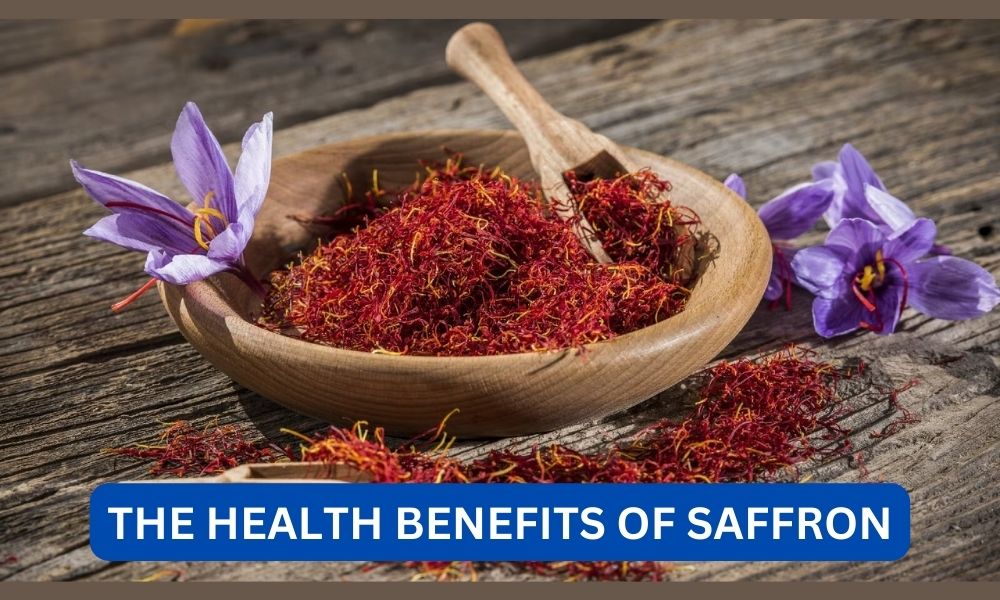Saffron, also known as the “golden spice”, is a highly prized and sought-after spice that has been used for centuries in traditional medicine and cooking. It is derived from the dried stigmas of the Crocus sativus flower and is known for its distinct aroma, flavor, and vibrant color. While saffron is commonly used as a flavoring agent in various cuisines, it also boasts a wide range of health benefits that have been backed by scientific research. In this article, we will delve into the various health benefits of saffron and explore how this exotic spice can improve our overall well-being.
The Nutritional Profile of Saffron
Saffron is a rich source of various vitamins and minerals that are essential for our body’s proper functioning. According to the United States Department of Agriculture (USDA), one tablespoon (2 grams) of saffron contains the following nutrients:
- Calories: 6
- Carbohydrates: 1.37 grams
- Fiber: 0.1 grams
- Protein: 0.24 grams
- Fat: 0.12 grams
- Vitamin C: 1% of the Recommended Daily Intake (RDI)
- Vitamin B6: 1% of the RDI
- Potassium: 1% of the RDI
- Manganese: 1% of the RDI
While these may seem like small amounts, saffron is typically used in small quantities in cooking, making it a concentrated source of these nutrients.
Read:Which is a benefit of quitting smoking?Anti-Inflammatory Properties
Saffron contains a compound called crocin, which gives it its distinct color and also has potent anti-inflammatory properties. Inflammation is a natural response of the body to injury or infection, but chronic inflammation can lead to various health issues such as heart disease, diabetes, and arthritis. Studies have shown that crocin can inhibit the production of inflammatory markers in the body, reducing the risk of chronic inflammation and its associated health problems.
In a study published in the Journal of Medicinal Food, researchers found that saffron extract significantly reduced inflammation in rats with arthritis. Another study conducted on human subjects with mild to moderate depression showed that saffron supplementation reduced the levels of inflammatory markers in their blood, leading to improved mood and overall well-being.
Boosts Mood and Reduces Symptoms of Depression
Saffron has been used in traditional medicine for its mood-enhancing properties, and recent studies have confirmed its effectiveness in treating depression. Depression is a common mental health disorder that affects millions of people worldwide, and it is characterized by persistent feelings of sadness, hopelessness, and loss of interest in activities.
In a meta-analysis of 6 studies, researchers found that saffron supplementation significantly reduced symptoms of depression compared to a placebo. Another study conducted on 40 adults with mild to moderate depression showed that saffron supplementation was as effective as a commonly prescribed antidepressant medication in improving symptoms. The researchers also noted that saffron had fewer side effects compared to the medication.
Read:What are the benefits of drinking ensure?Saffron is believed to boost mood by increasing the levels of serotonin, a neurotransmitter that regulates mood, in the brain. It also contains compounds that have a calming effect on the nervous system, promoting relaxation and reducing anxiety.
Improves Memory and Cognitive Function
Saffron has been used in traditional medicine to improve memory and cognitive function, and recent studies have shown promising results. In a study published in the Journal of Psychopharmacology, researchers found that saffron supplementation improved memory and cognitive function in adults with mild to moderate Alzheimer’s disease. Another study conducted on healthy young adults showed that saffron supplementation improved their memory and attention span.
Saffron is believed to improve memory and cognitive function by increasing blood flow to the brain and protecting brain cells from damage. It also contains compounds that have antioxidant properties, which can protect the brain from oxidative stress and age-related decline.
May Help in Weight Loss
Saffron has been traditionally used to aid in weight loss, and recent studies have shown that it may have some potential in this area. In a study published in the Journal of Nutritional Science and Vitaminology, researchers found that saffron extract reduced snacking and increased feelings of fullness in women with overweight or obesity. Another study conducted on overweight and obese women showed that saffron supplementation reduced their body mass index (BMI) and waist circumference.
Read:What are the benefits of eating asparagus?Saffron is believed to aid in weight loss by suppressing appetite and reducing cravings, which can lead to a decrease in calorie intake. It also contains compounds that can boost metabolism and increase fat burning.
May Have Anti-Cancer Properties
Saffron contains compounds that have been shown to have anti-cancer properties in various studies. In a study published in the journal Cancer Letters, researchers found that saffron extract inhibited the growth of colon cancer cells in mice. Another study conducted on human cancer cells showed that saffron extract had anti-tumor effects on breast cancer cells.
Saffron is believed to have anti-cancer properties due to its high antioxidant content, which can protect cells from damage and prevent the formation of cancerous cells. It also contains compounds that can induce cell death in cancer cells, preventing their growth and spread.
May Improve Heart Health
Saffron has been traditionally used to improve heart health, and recent studies have shown that it may have some potential in this area. In a study published in the Journal of Cardiovascular Pharmacology, researchers found that saffron extract reduced blood pressure and improved heart function in rats with high blood pressure. Another study conducted on human subjects with metabolic syndrome showed that saffron supplementation reduced their blood pressure and improved their lipid profile.
Saffron is believed to improve heart health by reducing inflammation, which is a major risk factor for heart disease. It also contains compounds that can improve blood flow and reduce cholesterol levels, which can contribute to a healthier heart.
May Improve Sexual Function
Saffron has been used as an aphrodisiac in traditional medicine, and recent studies have shown that it may have some potential in improving sexual function. In a study published in the Journal of Urology, researchers found that saffron supplementation improved erectile function in men with erectile dysfunction. Another study conducted on women with low sexual desire showed that saffron supplementation improved their sexual function and satisfaction.
Saffron is believed to improve sexual function by increasing blood flow to the genital area and stimulating the production of sex hormones. It also contains compounds that have a positive effect on mood and can reduce stress and anxiety, which can contribute to sexual dysfunction.
How to Incorporate Saffron into Your Diet
Saffron is a versatile spice that can be used in various dishes to add flavor, aroma, and color. Here are some ways to incorporate saffron into your diet:
- Add a pinch of saffron to rice dishes, such as paella or biryani, for a vibrant color and flavor.
- Infuse saffron in hot water or milk to make a flavorful tea.
- Add saffron to soups, stews, and sauces for a unique flavor.
- Sprinkle saffron on top of desserts, such as ice cream or pudding, for a touch of luxury.
Conclusion:
Saffron is not just a flavorful and exotic spice, but it also boasts a wide range of health benefits that have been backed by scientific research. From reducing inflammation and improving mood to aiding in weight loss and improving heart health, saffron has proven to be a powerful and versatile spice that can improve our overall well-being. So, the next time you reach for this golden spice in your kitchen, remember its numerous health benefits and savor its unique flavor and aroma.









